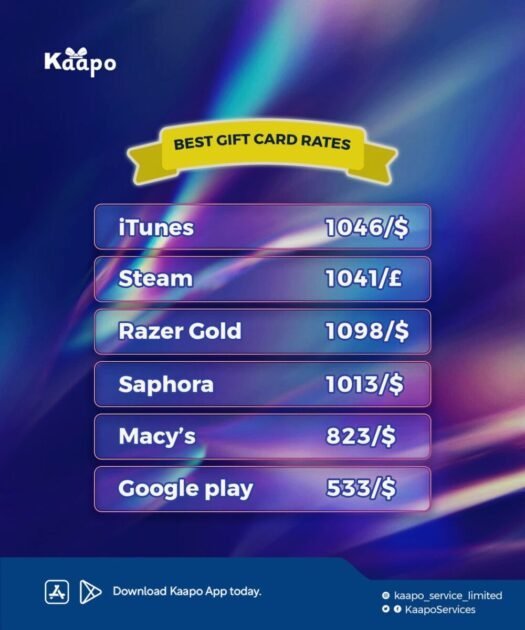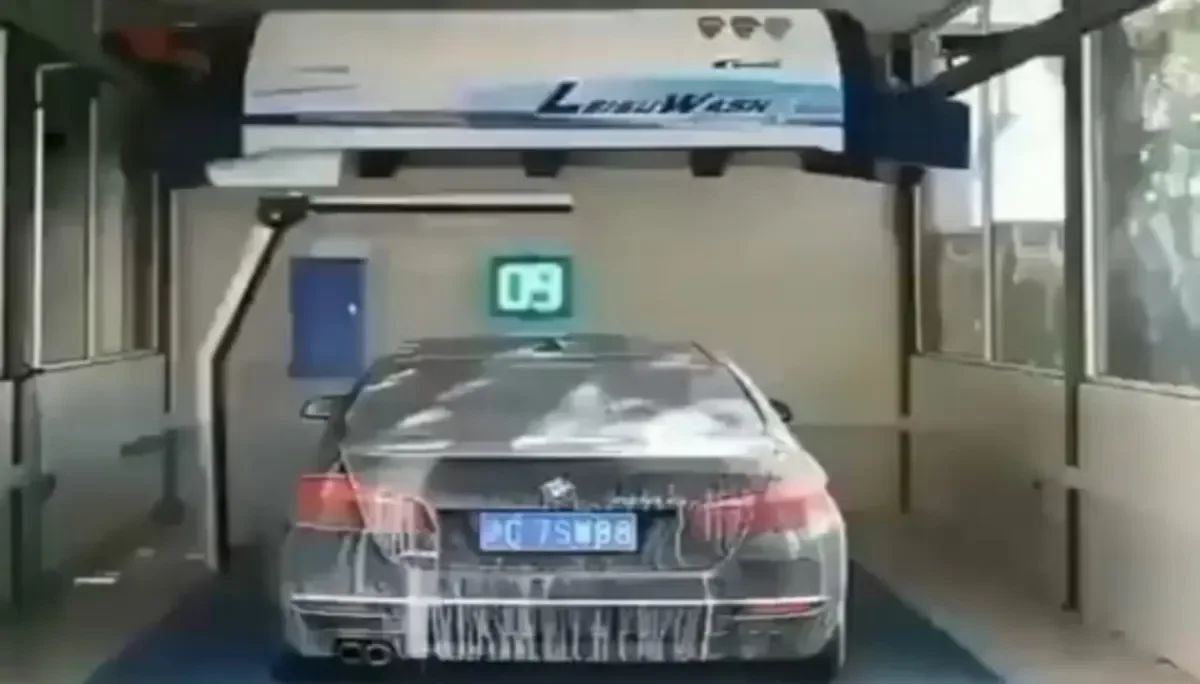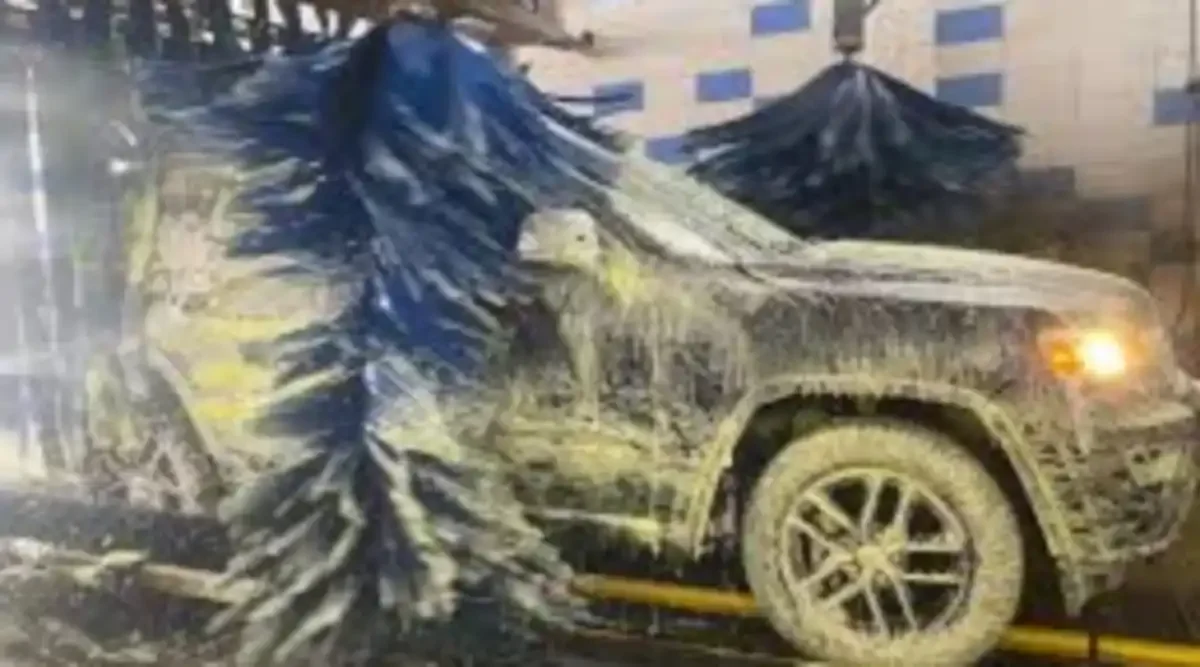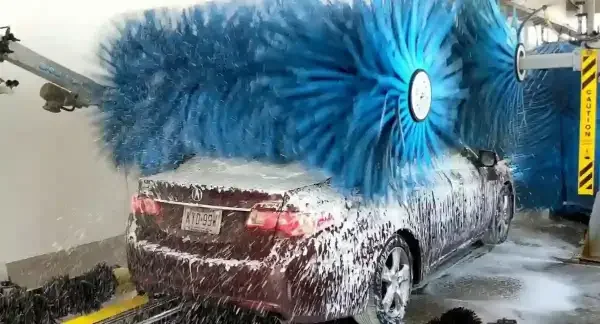How much does an automatic car wash cost? You need to understand how much to spend on regular things like a car wash these days. Besides, everything is getting more expensive, including car washes. So, it is good to know what you’re paying for and if it is worth the price in the first place. Not only that, we have extended this post further by revealing the profitability of automatic car washes, as well as whether it is safe for your vehicle or not.
How Much Does an Automatic Car Wash Cost?
So, how much does a car wash usually cost? Well, the cost of an automatic car wash depends on what services are included, where the car wash is, and other things. Normally, a single automatic car wash can cost you anywhere from $10 to $25.
The cheaper car washes give you a basic clean and let you use their vacuums for free. The more expensive ones should give you top-quality washes, including waxing, ceramic coating, and tire shine – also with free vacuuming.
Some basic packages typically include an outside wash, dry, and wheel clean. Once your car is out of the tunnel, you can use the station with free detailing stuff with all washes. The station will usually have the following:
- a vacuum
- air freshener
- all-purpose cleaner
- window cleaner
- microfiber towels and
- detailing air
- automatic carpet mat cleaner (available in some car washes)
You could also get a customer wash. This wash may include an underbody wash, paint protectant, and a special rinse that leaves no spots (depending on the car wash provider). A special rinse will typically use water that’s been cleaned and softened so it won’t leave any dirt or harmful stuff on your car.
Another thing to think about with an automatic car wash cost is “membership”. Most car wash places offer memberships, and they usually cost about as much as two single car washes. If you are trying to save money, this might be the best option for you.
How Profitable is Automated Car Wash?
Let’s step aside from an automatic car wash cost and discuss its profitability – you might be interested. An automated car wash (as a business) can be profitable, considering its low labor costs, high demand, and sustainable business model. However, profitability depends on factors like location, pricing strategy, competition, operational efficiency, and customer service.
Let’s first consider the investment needed to start an automated car wash. The total cost, including land acquisition, construction, and equipment purchase, can range anywhere from $1 to $2.5 million. Operating costs, including utilities, maintenance, insurance, and salaries, also need to be taken into account.
The profitability depends on its revenue, which is influenced by:
a. Location
The number of cars cleaned daily is highly influenced by the location of the car wash. Areas with a high volume of cars, like busy roads, near shopping centers or residential areas, can attract more customers.
b. Pricing
The price you charge per car wash will directly impact your revenue. As of 2024, the average cost of a single automated car wash varies from $10 to $25, depending on the services offered.
c. Additional Services
Offering additional services such as vacuuming, detailing, or selling car maintenance products can also increase revenue.
d. Membership Programs
A membership program, where customers pay a monthly fee for unlimited car washes, can provide a steady revenue stream.
Now, let’s break down some figures! Let’s say your car wash is in a prime location and washes about 50 cars daily, at an average cost of $15 per wash. This equates to a daily revenue of $750, or roughly $22,500 per month (assuming 30-day months). Offering additional services or products can increase this figure further. If you sell additional services or products worth $5 to 20% of the customers daily, this will generate additional monthly revenue of $1,500.
If you have a membership program and charge $30 monthly (the price of two washes), and you have 100 members, you will make an additional $3,000 monthly.
Therefore, the total potential monthly revenue could be $27,000 ($22,500 from individual washes + $1,500 from additional services + $3,000 from memberships).
As for expenses, let’s consider the following:
Utilities (water, electricity) may cost about $2,500 monthly, maintenance could cost $1,000, insurance around $500, and staff wages might total $6,000. Therefore, total monthly expenses could be about $10,000.
Subtracting expenses from revenue, the monthly profit would be approximately $17,000.
Remember, this is a rough estimate and real-world figures can vary. Factors like weather conditions, local competition, and seasonal trends will also influence profitability.
As a summary, below is an illustrated profitability:
| Revenue/Expense Item | Monthly Amount ($) |
|---|---|
| Car Wash Revenue | 22,500 |
| Additional Services Revenue | 1,500 |
| Membership Revenue | 3,000 |
| Total Revenue | 27,000 |
| Utilities | -2,500 |
| Maintenance | -1,000 |
| Insurance | -500 |
| Wages | -6,000 |
| Total Expenses | -10,000 |
| Profit | 17,000 |
What is the Truth About Automatic Car Washes?
While automatic car washes are convenient are relatively affordable, they come with their share of disadvantages though:
1. Water Usage
There’s a misconception that automatic car washes waste a lot of water. While they do use a significant amount of water, most modern car washes recycle water, so they are more environmentally friendly than washing your car at home, which typically uses more water and doesn’t recycle it. In fact, washing a car at home or a parking lot fundraiser will use between 40 and 140 gallons of water on a single car – the lower estimate assumes the use of a bucket and spray nozzle. The higher is a free-flowing hose. The average amount of water used in a self-serve car is 17-18 gallons of water per car.
2. It Depends on Your Car Make and Model
Some vehicles, especially those with aftermarket parts or older models with delicate finishes, might not be well-suited to automatic car washes. Always check with your vehicle manufacturer’s recommendations.
3. Potential Damage to the Car
How about damage to the vehicle? Some car wash systems use heavy brushes that can cause scratches or swirl marks on the car’s paintwork. Automatic car washes can also damage side mirrors, antennas, or other protruding parts of the car.
4. Water Spots
Automatic car washes may leave water spots on the vehicle. This happens when water evaporates off the surface of the car and leaves behind minerals that can stain the paint or glass.
5. They Are Not Thorough
While automatic car washes are great for general cleaning, they often miss the nooks and crannies. It may not clean areas like the undercarriage or wheel wells as effectively as a hand wash.
6. Waste Generation
The used water from automatic car washes contains soap and other cleaning chemicals. If not properly treated, this wastewater can end up polluting local water bodies when it’s discarded.
7. Limited Cleaning Options
Automatic car washes offer limited cleaning options. For instance, they cannot provide detailed interior cleaning, spot cleaning, or wax application, tasks that are possible with a hand wash or detailing service.
What Type of Automatic Car Wash is Best?
There are generally 3 types of automatic car washes: touchless, soft-touch, and hybrid. The best type for your vehicle can depend on your specific needs and priorities, such as convenience, cost, the level of cleanliness required, and your vehicle’s make and model. Here’s an overview of each:
1. Touchless Car Washes
As the name suggests, touchless car washes use high-pressure water jets and strong chemicals to clean your vehicle, meaning no brushes touch your vehicle.
These tend to be more expensive because of the technology and high-pressure equipment used. They can range from $10 to $30 depending on your location and the specific services included, such as underbody washing or waxing. Also, because there’s no physical contact, these types of washes might not clean as thoroughly, especially in areas where dirt is stubborn or hard to reach.
2. Soft Touch Car Washes
These use soft, cloth brushes along with water and soap to clean your car. These are generally more affordable and might range from $6 to $20. The exact price would depend on your location and the specific services provided. They can be more effective at removing dirt compared to touchless washes, especially in crevices and hard-to-reach areas.
However, there’s a chance that these cloth brushes can pick up small bits of dirt or grit from cars they’ve cleaned before, which could potentially scratch your vehicle’s surface.
3. Hybrid Car Washes
A combination of touchless and soft-touch technologies. As these provide a mix of services from touchless and soft-touch car washes, their cost can vary greatly, but you might expect to pay between $10 and $25.
They use high-pressure water jets to remove the majority of dirt and grime, followed by soft-touch brushes for a more thorough clean. Hybrid washes balance the advantages of both other types, but they also combine their disadvantages – there’s a risk of scratches from the brushes, and the chemicals used in the touchless part of the wash could harm your car’s finish.
Read also: 14 Low Cost Franchises Under 500








